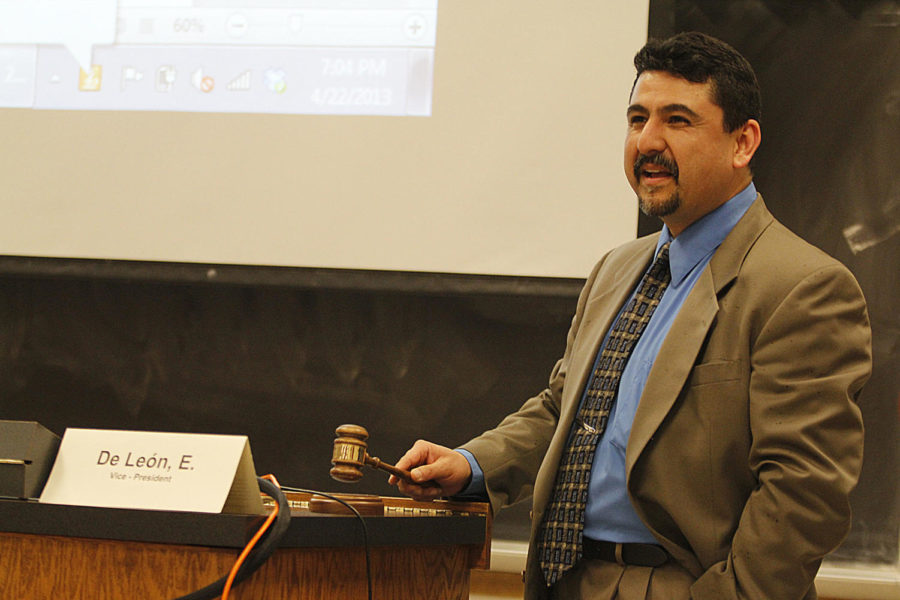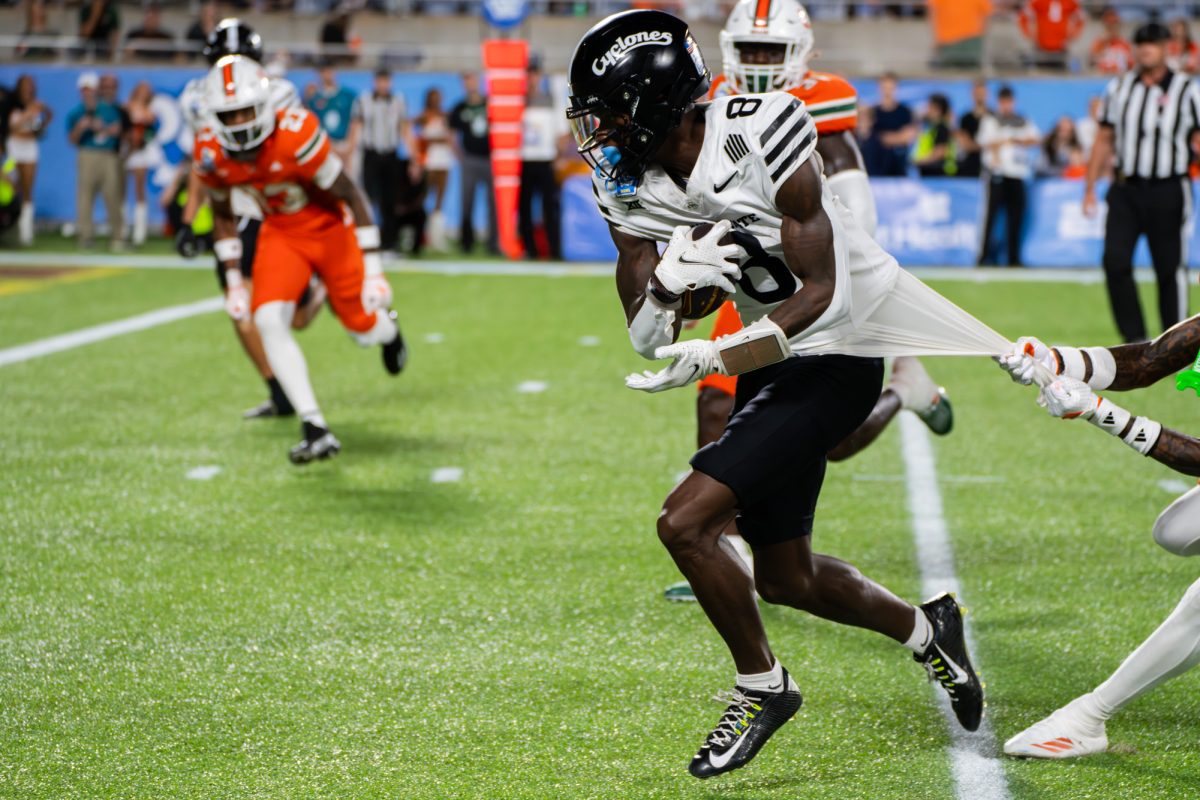Senators give reactions to Graduate and Professional Student Senate tabled resolution
Photo: William Deaton/Iowa State Daily
Vice President of GPSS Jose Eliseo De Leon opens up the start of the last Graduate and Professional Student Senate meeting in Lagomarcino Hall on April 22, 2013.
May 2, 2013
The Graduate and Professional Student Senate addressed concerns regarding a new resolution that would impact future and present graduate and professional students at Iowa State.
The executive council presented the Senate Resolution S13–14, which is the promotion of graduate involvement and leadership, at the final meeting of the year on April 22, 2013.
The resolution was taken both negatively and positively by the senators. The senators voted to table the resolution until fall semester.
The purpose of the resolution is to encourage senators to be more involved in leadership positions and make it required for senators to hold a leadership position during their time in the graduate programs at ISU.
Anna Prisacari, president of the Graduate and Professional Student Senate Executive Council, was involved in the start-up of the resolution. She said she was pleased with the reaction and discussion from the senators about the resolution.
The comments from senators will help her to reevaluate the resolution until the fall semester when the resolution will be addressed again by the new senators.
Prisacari said the “senators did not disagree with the main idea.”
Some senators disagreed with the idea of making leadership and community involvement a “mandatory” requirement for all Graduate and Professional Student Senate students.
“We want our students to take advantage of these unique opportunities, so regardless where they end up after graduation, they can successfully take the role of a leader in their new communities,” Prisacari said.
Sen. Scott Paja, doctorate student in higher education administration, said he thought one of the challenges during the meeting with the resolution was the mandated aspect of holding a leadership position.
“Using the word ‘mandate’ is what scared a lot of folks,” Paja said.
Paja’s dissertation topic is in leadership development in adult learning, so leadership opportunities are important to Paja and he supports the resolution, but voted to table it until fall semester to work out details for people to feel comfortable with, Paja said.
“One of the challenges at any level, graduate or undergraduate, is getting passed the idea of leadership as a position,” Paja said.
Dustin Dalluge, doctorate student in mechanical engineering, biorenewable resources and technology, also did not agree with the term mandate being used in the resolution presentation.
“I think many of the senators were under the impression that this was a senate bill and everyone would suddenly be forced to take on leadership responsibilities before they could graduate,” Dalluge said.
Dalluge agrees with the resolution to have graduate and professional students hold leadership positions prior to graduation.
There is a difference between the leadership positions for undergraduate and graduate students, Dalluge said.
“After graduation, whether in industry or academia, former graduate students will be expected to be a leader in some way or another,” Dalluge said.
The resolution will be reevaluated in the fall semester with changes made over the summer months by Graduate and Professional Student Senate executive members.







